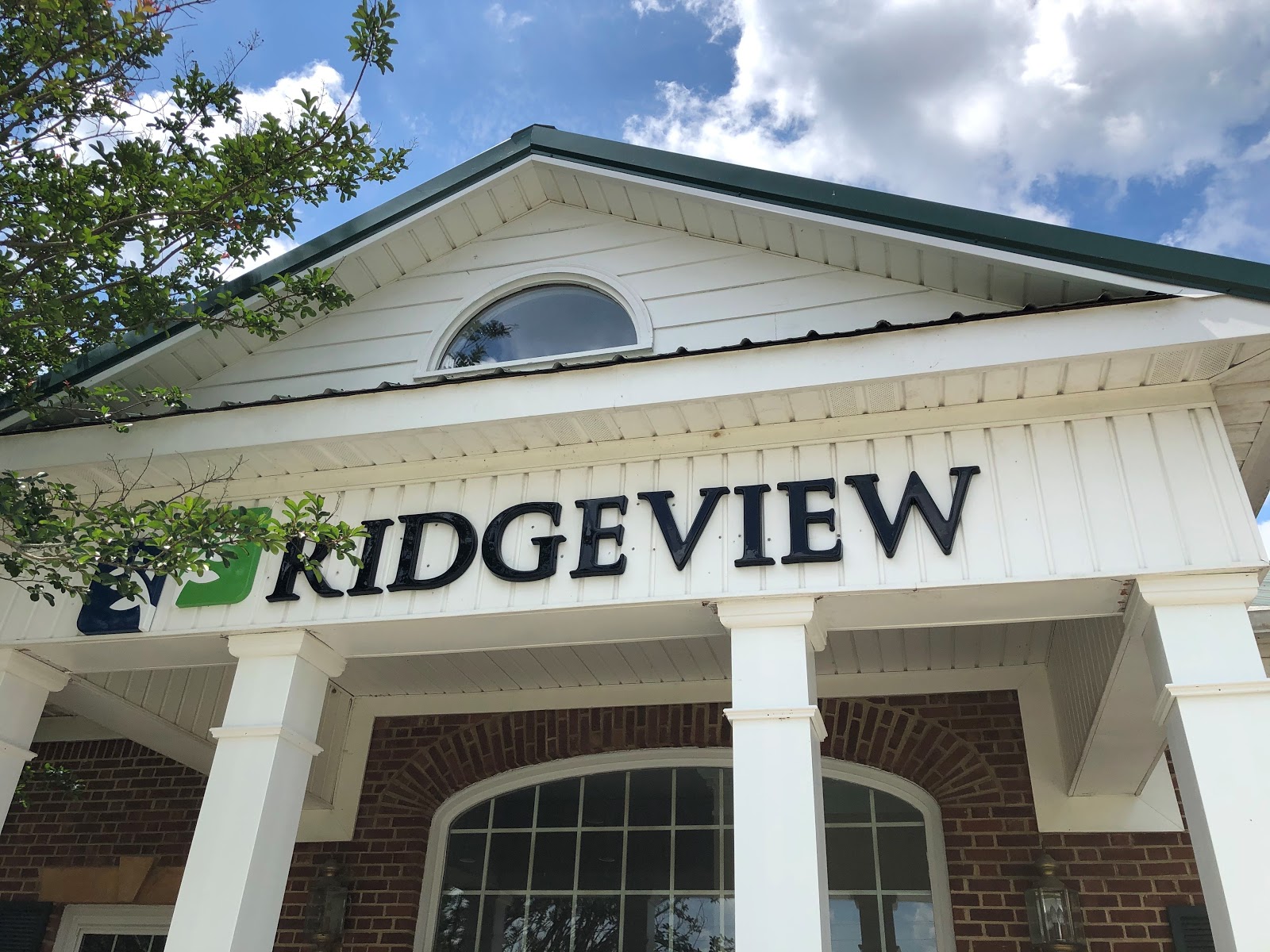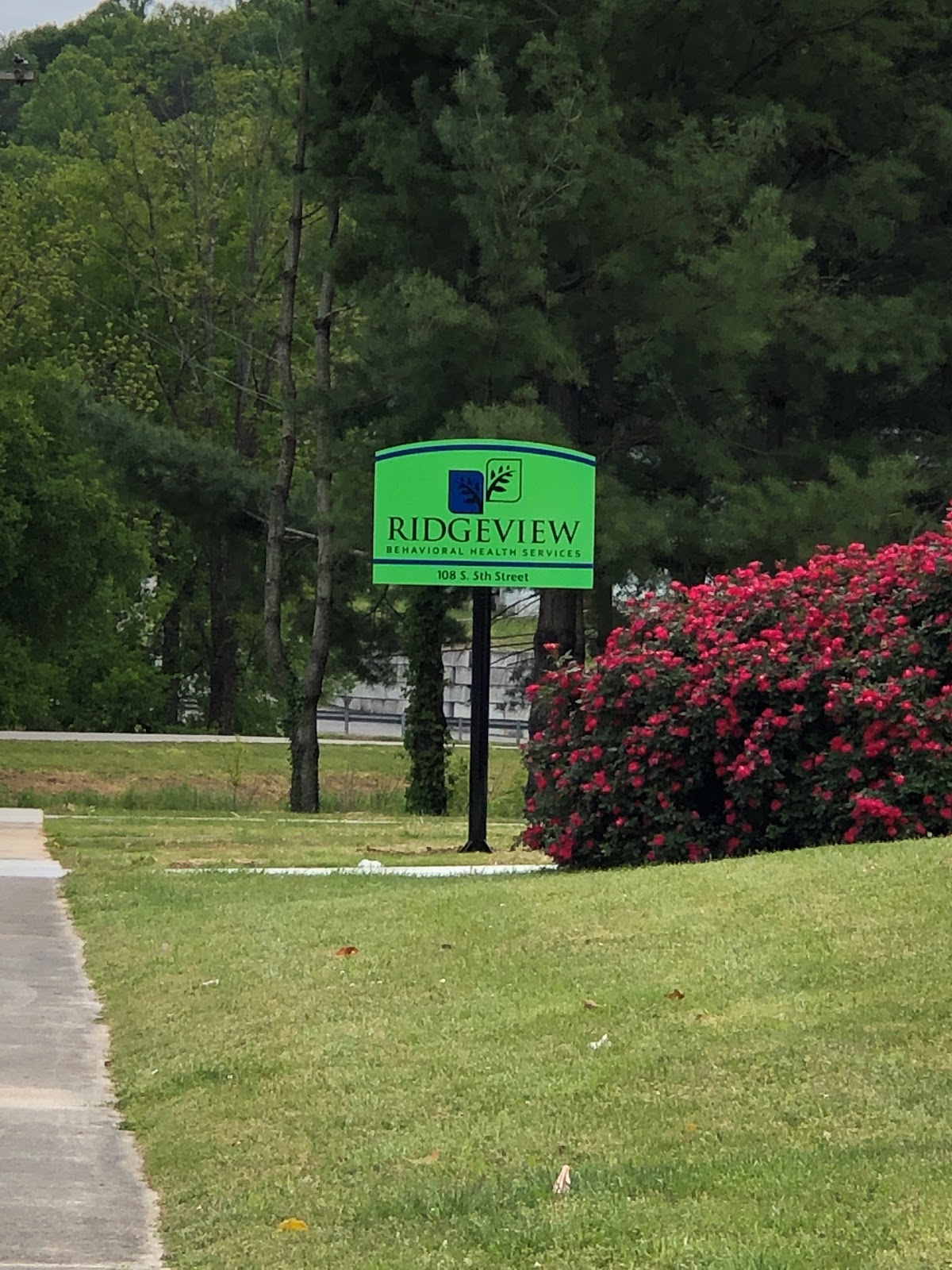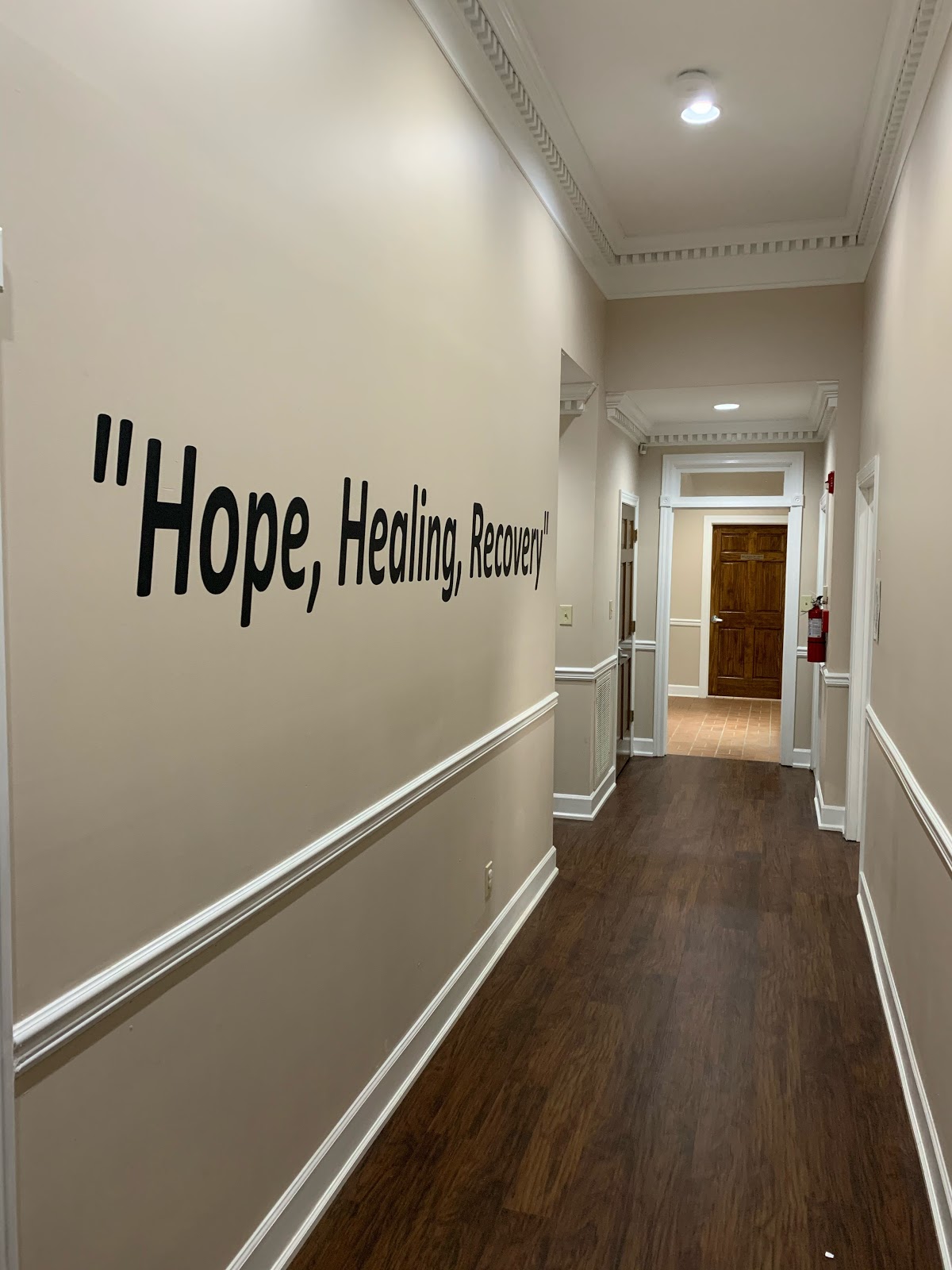Ridgeview Behavioral Health Services - Campbell Outpatient Center
Overview
In Oak Ridge, Tennessee, Ridgeview Behavioral Health Services offers a wide range of treatments specifically designed for people with mental health and substance use problems. The hospital provides care for both adults and children and focuses on inclusive care, with special services for pregnant women and mothers whose babies have been exposed to drugs. The center's services are not labeled as gender- or faith-based-specific. Instead, they are designed to meet the needs of all people who come in for help.
The facility has many services, such as detox, outpatient care, intensive outpatient care, partial hospitalization, aftercare services, and choices for sober living. Cognitive Behavioral Therapy (CBT), individual and group therapy, family support services, medication management, crisis services, and mental health disaster relief are some of the ways that Ridgeview treats people. Ridgeview is notable for its unique programs for pregnant women and their babies, as well as its crisis response services for major disasters, which help first responders and the community as a whole. As a member of The Joint Commission, Ridgeview is dedicated to providing its clients with the best care and services possible.
Ridgeview Behavioral Health Services - Campbell Outpatient Center at a Glance
Payment Options
- Medicaid
- Private health insurance
- Cash or self-payment
- Sliding fee scale (fee is based on income and other factors)
- State-financed health insurance plan other than Medicaid
Assessments
- Comprehensive mental health assessment
- Comprehensive substance use assessment
Age Groups
- Adults
- Young adults
- Children/adolescents
Ancillary Services
- Case management service
Accreditations
SAMHSA certification for opioid treatment program (OTP):
SAMHSA's Opioid Treatment Programs (OTP) Accreditation is a rigorous recognition process, signaling an OTP's commitment to high-quality care for those with opioid use disorders. It assures patients, families, and the community that the program adheres to evidence-based practices, maintains a safe environment, and employs qualified staff. This accreditation represents a commitment to addressing the opioid epidemic and promoting recovery, symbolizing quality and accountability in opioid addiction treatment.
State department of health:

Government agencies issue State Licenses, granting rehabilitation organizations permission to operate their businesses legally within specific geographic regions. The licenses needed for legal operation are typically determined by the type of rehabilitation program offered by a facility and its physical location.
Registration: L000000022319
Treatment At Ridgeview Behavioral Health Services - Campbell Outpatient Center

Conditions Treated
Mental health treatment:
Mental health treatment involves various therapies and support services provided by licensed professionals to address mental health issues. These interventions, which can include therapy, medication, and holistic approaches, aim to enhance well-being, improve coping, and empower individuals to lead fulfilling lives. It's personalized, comprehensive care for mental health challenges.
Alcoholism:
Alcohol addiction is when a person becomes physically and mentally dependent on alcohol, leading to mood swings, impulsive actions, intense cravings, and withdrawal symptoms. Treatment includes supervised detox, therapy, and support groups. It's important to note that rehabilitation doesn't "cure" alcoholism, but it helps individuals better manage their addiction, regain their ability to function in daily life, and improve their overall well-being.
Opioid Addiction:
Opioid rehabilitation centers are dedicated to assisting individuals on the path to recovery from opioid addiction. They provide specialized care for those struggling with addiction to substances like heroin and prescription opioids such as oxycodone. These facilities offer a comprehensive approach, including medical detoxification, ongoing medical assistance (including medication-based treatment), and therapeutic support to address the root causes of addiction.
Substance use treatment:
Substance use rehabilitation embodies a holistic treatment approach crafted to assist individuals contending with drug or alcohol addiction. This all-encompassing rehabilitation strategy encompasses two crucial components: initially addressing the physical dependency, frequently commencing with detoxification, and subsequently confronting the psychological triggers through a diverse array of therapeutic methods. The overarching objective is to empower individuals to achieve and maintain sobriety while equipping them with essential skills and coping mechanisms for a successful reintegration into society and a life free from substance abuse.
Co-occurring Disorders:
Dual-diagnosis rehabilitation centers usually offer the most suitable approach for addressing concurrent mental health and substance abuse conditions. Within these facilities, a team of medical and behavioral professionals is typically assembled, employing diverse interventions and cultivating an optimal therapeutic environment to enable you to attain and maintain lasting recovery. The treatment regimen often encompasses evidence-based therapies, such as cognitive behavioral therapy, complemented by recovery support gatherings, 12-step program facilitation, skills development, and group therapy.

Levels Of Care
Detoxification:
Detoxification, often just called "detox", is like giving the body a deep clean from harmful substances like drugs or alcohol. When someone decides to stop using these substances, their body might react with tough symptoms. Detox helps to handle these reactions safely. Think of it as helping the body reset after too much exposure to harmful stuff.
Outpatient:
Outpatient treatment at rehab centers provides adaptable therapy schedules, usually spanning 1-3 hours weekly, enabling participants to maintain their everyday routines while undergoing treatment. On the other hand, intensive outpatient programs require a more dedicated time investment, frequently around 9-15 hours a week, delivering a deeper therapeutic experience without the commitment of inpatient residency.

Treatment Modalities
12-step facilitation:
Recovery frameworks grounded in 12-step programs prioritize peer mentoring and underline personal development as essential for maintaining sobriety. Those in recovery are encouraged to attend 12-step meetings, which guarantee anonymity frequently, have no cost, and are accessible every day. These 12 steps draw from spiritual tenets, assisting participants in confronting the underlying reasons for their addiction, acknowledging their decisions, and embracing the aspects outside their control. Chosen by the participants themselves, sponsors offer individualized guidance and support.
Group counseling:
Group Counseling is a therapeutic approach where individuals come together under the guidance of a trained counselor to share experiences, provide mutual support, and gain insights. It fosters a sense of community, promotes understanding through diverse perspectives, and offers personal growth and problem-solving strategies.
Life Skills:
Life skills training encompasses a comprehensive set of abilities essential for individuals to thrive in society. These encompass time management, career guidance, financial acumen, and effective communication. In the context of addiction recovery, true success goes beyond mere abstinence; it's about flourishing. Life skills instruction equips individuals with the practical tools needed to navigate society successfully, paving the way for a fulfilling life and, consequently, lasting sobriety.
Cognitive Behavioral Therapy:
Cognitive Behavioral Therapy (CBT) is a evidence-based psychological treatment that focuses on identifying and challenging negative thought patterns and behaviors. It aims to develop coping strategies and promote healthier thinking to address a variety of mental health issues, such as depression, anxiety, and stress. CBT is typically short-term and goal-oriented, emphasizing the role of thought processes in influencing emotions and behaviors.
Dialectical Behavior Therapy:
Dialectical Behavior Therapy (DBT) is an evolved version of Cognitive Behavioral Therapy (CBT) that aims to assist individuals in recognizing and influencing the interplay among their thoughts, emotions, and actions. DBT is particularly beneficial for those grappling with self-harming behaviors, including self-inflicted injuries like cutting, as well as suicidal ideations or tendencies. Clinically, it has shown effectiveness in managing intense emotions and conditions such as Borderline Personality Disorder.
Motivational Interviewing:
Motivational Interviewing (MI) is a client-centered therapeutic approach that fosters behavioral change by assisting individuals in exploring and resolving ambivalence. Specifically tailored for addiction treatment, MI helps clients unearth their own motivations to quit substance use and empowers them to take the lead in their recovery journey. Therapists guide clients toward their goals and self-determined pathways to sobriety through empathetic conversation and skillful questioning.
Trauma-related counseling:
Trauma-related counseling addresses the deeply rooted psychological wounds and distress that often coexist with substance use disorders. Recognizing that past traumatic experiences can play a significant role in the onset and persistence of addiction, this therapeutic approach aims to help individuals understand and process their trauma, develop coping skills, and work towards healing. Individuals are better equipped to achieve long-term recovery and improved mental well-being by simultaneously addressing both trauma and addiction.
Nicotine replacement:
Nicotine Replacement Therapy (NRT) is a medical treatment designed to help individuals quit smoking by providing a controlled and decreasing dose of nicotine through alternative means, such as patches, gums, or lozenges, to reduce withdrawal symptoms and cravings. This approach aids in gradually weaning off nicotine dependence while bypassing the harmful effects of smoking.
Individual psychotherapy:
In individual therapy, a person engages in a one-on-one session with a qualified therapist or counselor. This therapeutic approach is crucial in successful substance abuse treatment because it delves into the underlying causes of addiction, addressing issues the individual may encounter in their familial, social, and professional or academic environments.
Ancillary Services
Languages
- Sign language services for the deaf and hard of hearing
- English
Special Programs
- Pregnant/postpartum women
- Clients who have experienced trauma
Contact Information
DISCLAIMER: The facility name, logo and brand are the property and registered trademarks of Ridgeview Behavioral Health Services - Campbell Outpatient Center, and are being used for identification and informational purposes only. Use of these names, logos and brands shall not imply endorsement. BetterAddictionCare.com is not affiliated with or sponsored by Ridgeview Behavioral Health Services - Campbell Outpatient Center.






